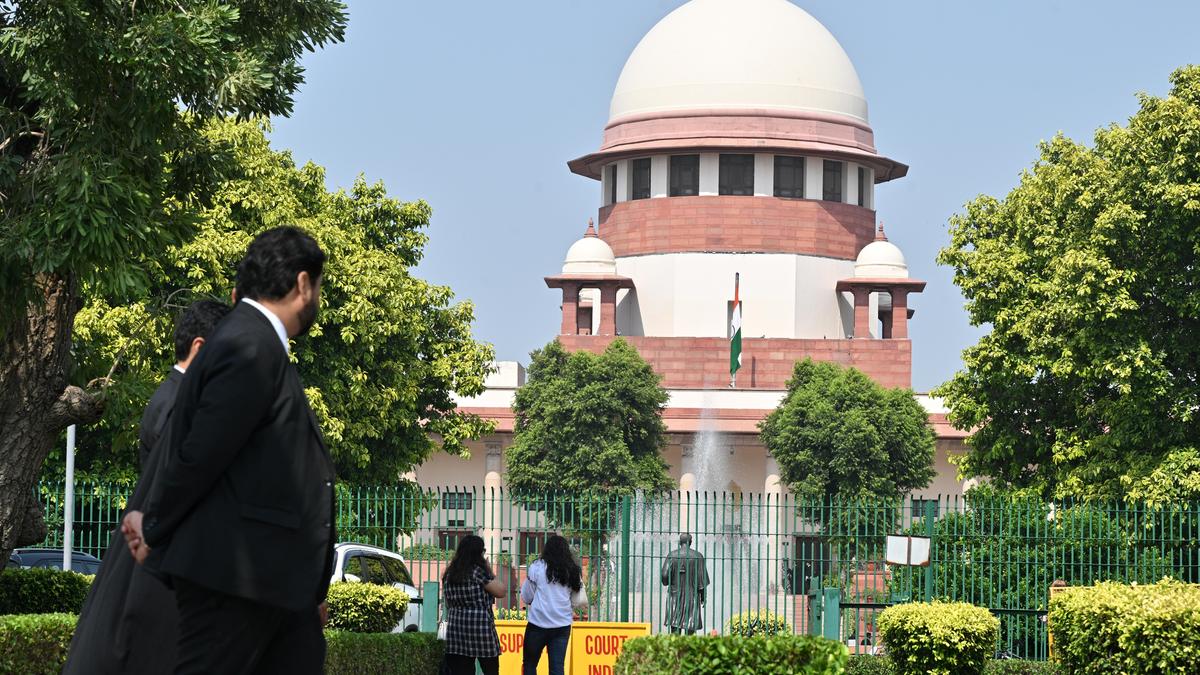A Shocking Revelation: Snake Venom at Rave Parties
The Indian entertainment industry was rocked by a bizarre case involving YouTuber Elvish Yadav and his alleged involvement with snake venom at rave parties. This blog delves into the details of the “Snake Venom Case,” exploring the dangers of snake venom addiction, the accusations against Elvish Yadav, and the ongoing investigation.

What is Snake Venom?
Snake venom is a complex cocktail of toxins produced by snakes to paralyze or kill their prey. It contains various enzymes, neurotoxins, and cytotoxins that can have a devastating impact on the human body. Snake venom is typically injected through a snake’s fangs but can also be absorbed through mucous membranes or open wounds.
The Dangers of Snake Venom Addiction
The concept of snake venom addiction is a relatively new and concerning phenomenon. While some studies suggest the possibility of psychological dependence on the “high” caused by certain venom components, there’s no scientific evidence to support actual physical addiction. However, experimenting with snake venom is extremely dangerous and can lead to serious health complications, including:
- Paralysis
- Organ failure
- Tissue damage
- Internal bleeding
- Death

Elvish Yadav Latest News: Arrest and Allegations
Elvish Yadav, winner of the reality show Bigg Boss OTT, was arrested in March 2024 by Noida Police in connection with the “Snake Venom Case.” Initially, he denied any involvement. However, during questioning, he reportedly confessed to arranging snake venom and using snakes in his video shoots.

How it Unfolded: The Investigation and Charges
The case stemmed from a raid conducted by Noida Police in November 2023 at a banquet hall where a rave party was suspected to be using snake venom as a recreational drug. The raid led to the arrest of five people, including snake charmers, and the seizure of nine snakes and venom samples. A forensic investigation confirmed the presence of cobra and krait venom in the confiscated samples.
Following Elvish Yadav’s arrest, sources revealed that an NGO had filed a complaint alleging his involvement in supplying snake venom for parties. The NGO member reportedly contacted Yadav through a phone number obtained from another suspect and was eventually directed to the five individuals arrested earlier.
Elvish Yadav Snake Venom Case: Legal Implications
Elvish Yadav faces charges under the Wildlife Protection Act, 1972, for violating wildlife trade regulations. Initially, he faced a case only under this Act. However, his alleged confession and the seriousness of the accusations led to additional charges under the Narcotic Drugs and Psychotropic Substances (NDPS) Act. The NDPS Act carries stricter penalties for offenses involving illegal drugs and psychoactive substances.
Is Elvish Yadav Arrested? The Current Status
As of March 2024, Elvish Yadav remains under arrest and is undergoing judicial custody. The investigation is ongoing, with authorities attempting to identify and apprehend any other individuals involved in the alleged snake venom racket.
Beyond the Headlines: The Underlying Issues
The “Snake Venom Case” has exposed several underlying issues that require immediate attention:
- The rise of dangerous trends: The case highlights the emergence of potentially life-threatening trends in the name of recreation.
- Lack of awareness: Public awareness about the dangers of snake venom addiction needs to be significantly increased.
- Loopholes in wildlife protection: The case raises questions about the effectiveness of existing laws in curbing the illegal wildlife trade.
Moving Forward: Recommendations and Public Responsibility
To address these issues, here are some recommendations:
- Increased Law Enforcement: Stricter law enforcement measures are needed to disrupt the illegal wildlife trade and crack down on the supply of snake venom.
- Public Awareness Campaigns: Educational campaigns can inform the public about the dangers of snake venom addiction.
- Regulation of Social Media: Social media platforms need to be held accountable for content that promotes dangerous trends or glorifies the use of snake venom.
The public also plays a crucial role in combating this issue by:
- Avoiding harmful trends: Saying no to dangerous substances and activities like those allegedly associated with snake venom.
- Reporting suspicious activity: Reporting any suspected cases of snake venom use or illegal wildlife trade to the authorities.
- Spreading awareness: Educating others about the dangers of snake venom and the importance of wildlife conservation.
Conclusion: A Collective Effort to Ensure Safety
The “Snake Venom Case” serves as a stark reminder of the potential consequences of experimenting with dangerous substances. Addressing this issue requires a collaborative effort from law enforcement agencies, policymakers, social media platforms, and the public. By raising awareness, enforcing stricter regulations, and promoting responsible behavior, we can prevent similar tragedies from occurring in the future.
Snake Venom Case Update: Elvish Yadav’s Trial, Ongoing Investigation, and Public Discourse
Elvish Yadav Jail: Awaiting Trial and Facing Public Scrutiny
The “Snake Venom Case” continues to hold the spotlight in India, with ongoing legal proceedings against YouTuber Elvish Yadav. This section delves deeper into the details of his trial, the ongoing investigation, and the public’s reaction to this bizarre incident.
Elvish Yadav in Jail: Trial Updates and Legal Battles
Elvish Yadav remains behind bars as his trial progresses. He initially pleaded not guilty to the charges under the Wildlife Protection Act, 1972, and the Narcotic Drugs and Psychotropic Substances (NDPS) Act. However, his alleged confession and the evidence gathered by police have made his defense strategy more challenging.
Snake Venom Elvish Yadav Case: Key Arguments and Defense Strategy
Yadav’s legal team is likely to focus on the following arguments:
- Limited Involvement: They may try to downplay his role, arguing that he wasn’t directly involved in supplying snake venom but merely facilitated communication between interested parties.
- Lack of Intent: His defense might claim that he wasn’t aware of the planned use of snake venom at rave parties.
- Entrapment: A less likely argument would be entrapment, implying the police pressured him into admitting activities he didn’t commit.
The Prosecution’s Case: Building a Strong Argument
The prosecution will likely rely on the following evidence to build a strong case:
- Yadav’s Alleged Confession: If his confession holds weight in court, it significantly strengthens the case against him.
- Witness Testimony: Statements from co-accused individuals and any potential witnesses who can corroborate the allegations.
- Forensic Evidence: The presence of snake venom in samples collected during the raid and any potential links to Yadav.
Elvish Yadav Jail: Facing Public Scrutiny and Potential Impact
The “Snake Venom Case” has tarnished Elvish Yadav’s public image. Fans who once admired him now grapple with the allegations. Social media is filled with discussions, raising questions about his judgment and the influence he may have on young viewers.
Potential Impact on Career and Public Perception
If found guilty, Yadav could face significant consequences. He might receive a jail sentence and a heavy fine. His reputation will likely be severely damaged, making it difficult for him to regain his former position in the entertainment industry.
The Investigation Continues: Unanswered Questions and Potential Leads
The investigation surrounding the “Snake Venom Case” is ongoing. Authorities are focusing on several key areas:
- Identifying the Source of Snake Venom: Tracing the source of the snake venom and apprehending those involved in its illegal extraction and distribution.
- Investigating the Rave Party Network: Identifying other individuals or groups potentially involved in using and supplying snake venom at parties.
- Exploring Links to Wildlife Trafficking: Investigating any potential connections between the snake venom trade and larger wildlife trafficking networks.

Unanswered Questions and Public Curiosity
Several questions remain unanswered, fueling public curiosity:
- The Extent of the Network: Was this an isolated incident, or does it point to a larger network involved in supplying snake venom?
- Motivation of Partygoers: Why would anyone risk their health by using snake venom recreationally?
- Role of Social Media: Did social media trends or online content encourage the use of snake venom?
Public Discourse: Raising Awareness and Encouraging Responsibility
The “Snake Venom Case” has sparked important discussions about responsible social media use, the dangers of following dangerous trends, and the need for stricter wildlife protection laws.
Promoting Responsible Media Consumption:
- Critical Thinking: Viewers need to critically analyze online content and avoid blindly following trends that promote dangerous activities.
- Verifying Information: Cross-referencing information and relying on trusted sources can help prevent the spread of misinformation.
- Reporting Harmful Content: Reporting any content that glorifies or encourages the use of harmful substances like snake venom.
Beyond the Headlines: The Ethical Concerns of Using Wildlife
The case also highlights the ethical concerns surrounding the illegal wildlife trade and the exploitation of animals for dangerous and potentially deadly purposes.
- Wildlife Conservation: Promoting responsible wildlife conservation efforts to protect endangered species and their habitats.
- Promoting Ethical Entertainment: Advocating for animal-friendly entertainment practices that avoid harming or exploiting animals.
Conclusion: A Case Study for Change
The “Snake Venom Case” serves as a cautionary tale with far-reaching implications. It underscores the dangers of reckless experimentation and the importance of safeguarding wildlife. By working together, law enforcement, social media platforms, and the public can ensure the safety of individuals and prevent similar incidents from happening in the future.
Potential Outcomes and the Future of the Elvish Yadav Snake Venom Case
The “Snake Venom Case” involving YouTuber Elvish Yadav has captivated India’s attention. With the trial underway, speculation runs rampant about possible outcomes and the lasting impact this case might have. Let’s delve into the potential future of this case, exploring different scenarios and the ripple effects they could create.
Scenario 1: Conviction and the Fall from Grace
This scenario sees Elvish Yadav found guilty on charges under the Wildlife Protection Act and the NDPS Act. His alleged confession and collected evidence hold weight in court, leading to a conviction. The potential consequences could be:
- Jail Sentence: Depending on the severity of the charges proven, Yadav could face a sentence ranging from a few months to several years in prison.
- Financial Penalty: He might be slapped with a heavy fine, further impacting his finances.
- Career Ruination: A guilty verdict would likely shatter his career in the entertainment industry. Fans might lose trust, making it difficult for him to rebuild his image and resume his past success.
- Precedence Setting Case: The case could set a crucial precedent for future incidents involving the illegal wildlife trade and the irresponsible use of dangerous substances.
Scenario 2: Acquittal and a Tarnished Reputation
This scenario involves Elvish Yadav being acquitted of all charges. His defense team successfully throws doubt on the prosecution’s evidence, or perhaps the court deems the evidence insufficient. While this outcome would see him walk free, it wouldn’t necessarily mean complete vindication.
- Public Perception: While he might evade legal penalties, public trust could be permanently damaged. Fans might continue to view him with suspicion, and skepticism could shroud his future endeavors.
- Public Interest Wanes: Public outrage may diminish over time, and Yadav may attempt to rebuild his career. However, the stigma attached to the case might continue to hinder his progress.
Scenario 3: Plea Bargain and Conditional Freedom
In this scenario, both sides come to an agreement. Yadav might acknowledge some level of involvement in exchange for a lesser sentence or reduced charges. This could result in:
- Reduced Sentence: A plea bargain could lead to a shorter jail term or a probationary period with restrictions on his activities.
- Community Service: The court might impose community service hours to compensate for his actions and raise awareness about the dangers of wildlife trafficking.
- Public Service Announcements: Sharing his experience through public service announcements could help deter others from engaging in similar activities.
The Ripple Effects: Beyond Elvish Yadav
The outcome of the “Snake Venom Case” will extend beyond Elvish Yadav’s personal and professional life. It has the potential to trigger a domino effect, impacting several aspects of Indian society. Here’s a closer look:
- Increased Scrutiny of the Entertainment Industry: This case might lead to increased scrutiny of content creators and influencers, focusing on their responsibility to promote safe and ethical practices.
- Stringent Law Enforcement Actions: The authorities might implement stricter regulations and law enforcement measures to curb the illegal wildlife trade and the access to dangerous substances.
- Public Awareness Campaigns: Educational campaigns can be launched to raise awareness about the dangers of snake venom and the consequences of wildlife trafficking.
- Social Media Regulation: Social media platforms might face increased pressure to implement stricter regulations that prevent the spread of misinformation and harmful trends that promote the use of dangerous substances.
The Human Factor: Redemption and Rehabilitation
Regardless of the outcome, the possibility of redemption and rehabilitation for Elvish Yadav cannot be entirely disregarded. Here are some potential pathways:
- Taking Responsibility: If found guilty, genuinely accepting responsibility for his actions can initiate a path towards potential redemption.
- Public Apology: A sincere public apology could help rebuild some public trust, especially if accompanied by concrete actions towards positive change.
- Educational Advocacy: Using his platform to spread awareness about the dangers of snake venom and wildlife trafficking could demonstrate remorse and a desire for positive change.
Challenges of Redemption and the Public’s Verdict
However, the success of such efforts hinges on several factors:
- Sincerity of Actions: The public will judge Elvish Yadav’s intentions based on the genuineness of his apology and the commitment behind his efforts.
- Time Factor: Rebuilding trust and overcoming public skepticism takes time. His future actions will speak much louder than his words.
- The Power of Forgiveness: Ultimately, the public holds the power of forgiveness. Whether they choose to accept his apology and allow him to move forward remains to be seen.

Conclusion: A Case with Lasting Impact
The “Snake Venom Case” serves as a stark reminder of the dangers of reckless experimentation and the importance of safeguarding wildlife. It has sparked crucial discussions about social media responsibility, wildlife conservation, and the ethical treatment of animals.
The specific outcome of the case, whether conviction, acquittal, or a plea bargain, will undoubtedly influence the course of these discussions. However, the broader impact is undeniable.
This case serves as a catalyst for change, pushing for:
- Increased Public Awareness: Raising awareness about the dangers of snake venom addiction, the devastating effects of wildlife trafficking, and the potential consequences of irresponsible online trends.
- Stronger Legislation and Enforcement: Advocating for stricter laws and stricter enforcement measures to combat the illegal wildlife trade and the distribution of dangerous substances.
- Responsible Social Media Use: Encouraging critical thinking when consuming online content and promoting responsible use of social media platforms to prevent the spread of harmful information and trends.
Looking Ahead: A Call to Action
The “Snake Venom Case” should not be a mere spectacle to be consumed and forgotten. It serves as a call to action, urging all stakeholders to play their part in creating a safer and more responsible future:
- Law enforcement agencies: Continued vigilance in cracking down on wildlife trafficking and the illegal trade of dangerous substances.
- Social media platforms: Implementing stricter regulations and content moderation policies to deter the spread of harmful trends.
- Content creators and influencers: Prioritizing responsible content creation and promoting safe and ethical practices.
- The public: Critically engaging with online content, reporting harmful trends, and advocating for responsible wildlife conservation practices.
By working together, we can ensure that the “Snake Venom Case” becomes a turning point, sparking positive change that safeguards individuals, protects wildlife, and promotes a more responsible approach in the digital age.
Resources:
- https://www.ndtv.com/india-news/explained-snake-venom-addiction-and-the-case-against-youtuber-elvish-yadav-5259675
- https://www.thehindu.com/news/cities/Delhi/bigg-boss-ott-winner-elvish-yadav-arrested-in-snake-venom-case/article67961814.ece
- https://www.livemint.com/news/india/elvish-yadav-sent-to-14-days-of-judicial-custody-in-snake-venom-case-watch-video-11710678917964.html
- https://www.hindustantimes.com/india-news/elvish-yadav-arrested-by-noida-police-in-snake-venom-case-reports-101710669682936.html
- https://www.businesstoday.in/india/story/youtuber-elvish-yadav-arrested-by-noida-police-in-snake-venom-case-421803-2024-03-17
For latest Youtuber News: https://waddupindia.in/category/entertainment/
Legal Resources:
- The Wildlife Protection Act, 1972: [The Wildlife (Protection) Act, 1972 ON WII wiiindia.gov.in]
- The Narcotic Drugs and Psychotropic Substances Act, 1985: [The Narcotic Drugs and Psychotropic Substances Act, 1985 ON Ministry of Law and Justice, Government of India lawsofindia.in]






4 thoughts on “Snake Venom Case: Elvish Yadav’s Arrest Raises Alarming Concerns – Elvish Yadav Raosahab Latest News – 18th March”
Your article helped me a lot, is there any more related content? Thanks!
I don’t think the title of your article matches the content lol. Just kidding, mainly because I had some doubts after reading the article. https://www.binance.com/join?ref=P9L9FQKY
Thank you for your sharing. I am worried that I lack creative ideas. It is your article that makes me full of hope. Thank you. But, I have a question, can you help me?
Thank you for your sharing. I am worried that I lack creative ideas. It is your article that makes me full of hope. Thank you. But, I have a question, can you help me?